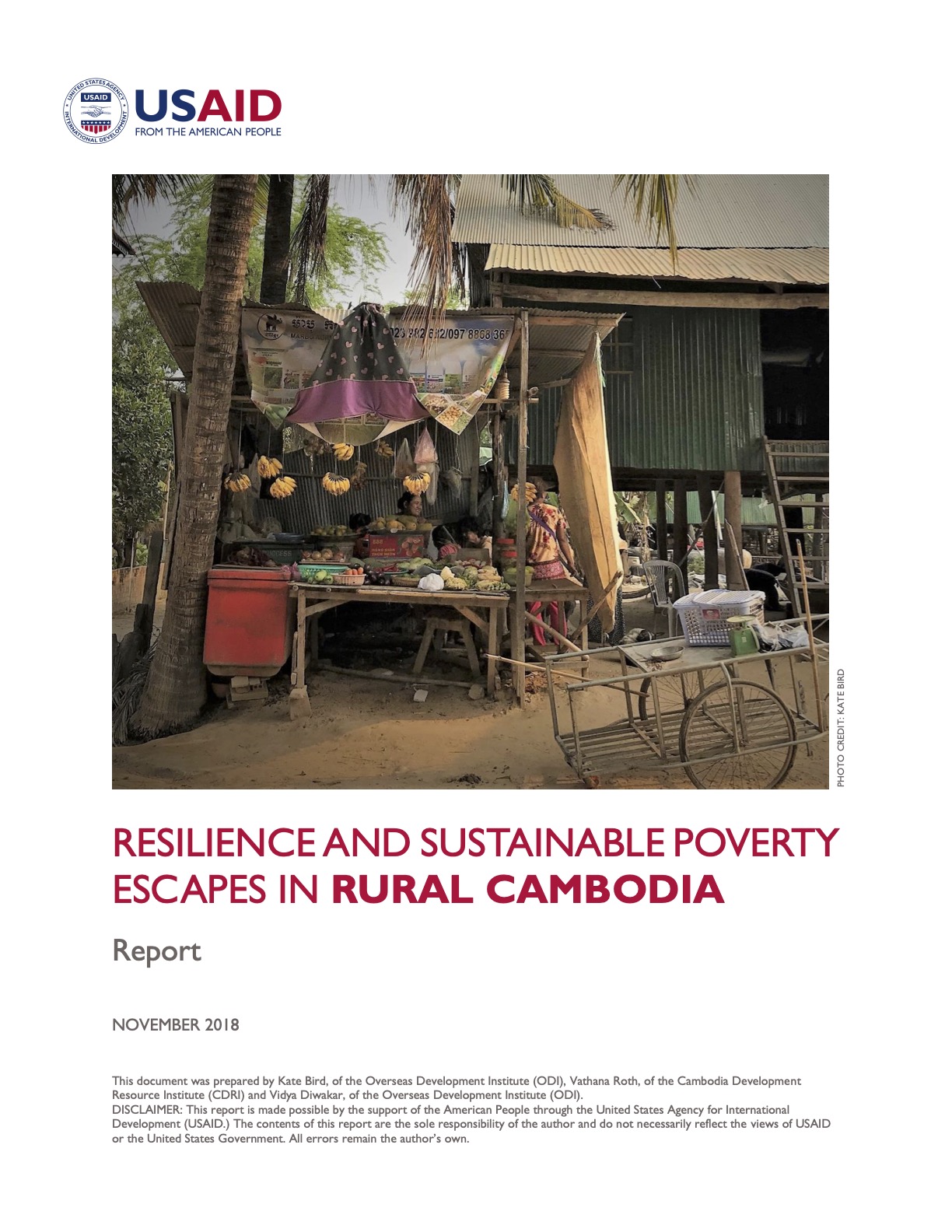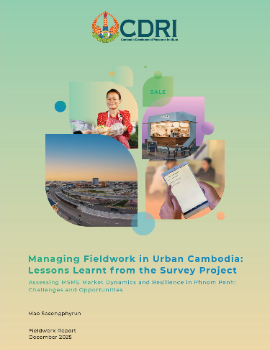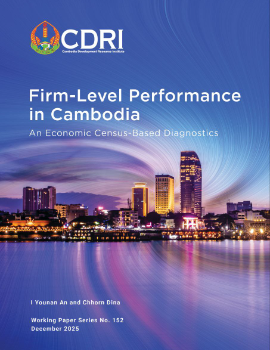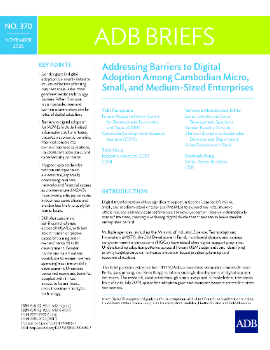
Abstract/Summary
The focus of this report is on household poverty escapes and what explains why some households escape poverty and remain out of poverty (sustainable poverty escape, or resilience), while other households escape poverty only to fall back into poverty (transitory poverty escape) and still other descend into poverty for the first time (impoverishment). Analysis of four rounds of the panel Agriculture, Rural Development and Poverty Reduction Survey in Cambodia spanning 2008-2017 for this case study reveals that just under one-fifth of households escaped poverty sustainably, while almost the same share (20%) escaped only to fall back in, or became impoverished for the first time, over the study period. There is considerable dynamism in rural household’s poverty status with almost 4 in 5 households living in poverty during at least one of the 2008-17 survey years.
This report combines analysis from four rounds of the panel survey with qualitative research approaches, in particular, key informant interviews, life histories, and participatory wealth ranking in 6 study sites across Cambodia major agro-ecological zones to further investigate the drivers of changes in poverty status. Specifically, it examines why some households are able to escape poverty and remain out of it—that is, they experience sustained escapes from poverty—while others escape poverty only to return to living in it again (i.e., transitory). The report investigates the resources (land, livestock, and other assets), attributes (household composition and education level), and activities (including jobs and engagement in non-farm activities) of households that enable them to escape poverty sustainably and minimize the likelihood of returning to living in poverty again.
The report can be accessed here.



